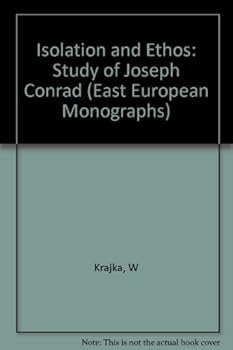Isolation and Ethos: A Study of Joseph Conrad
Using the East European structural tradition, this study provides an overall view of Conrad's ouevre and its position in history and culture. Krajka argues that Conrad's vision of loneliness, colonization and personal struggles of duty became a crucial component of 20th century cultural consciousness, forming a foundation of existentialism and creating a whole tradition of literature of solitude and its ethical consequences.
Format:Hardcover
Language:English
ISBN:088033231X
ISBN13:9780880332316
Release Date:May 1992
Publisher:East European Monographs
Length:332 Pages
Weight:1.20 lbs.
Customer Reviews
0 rating





